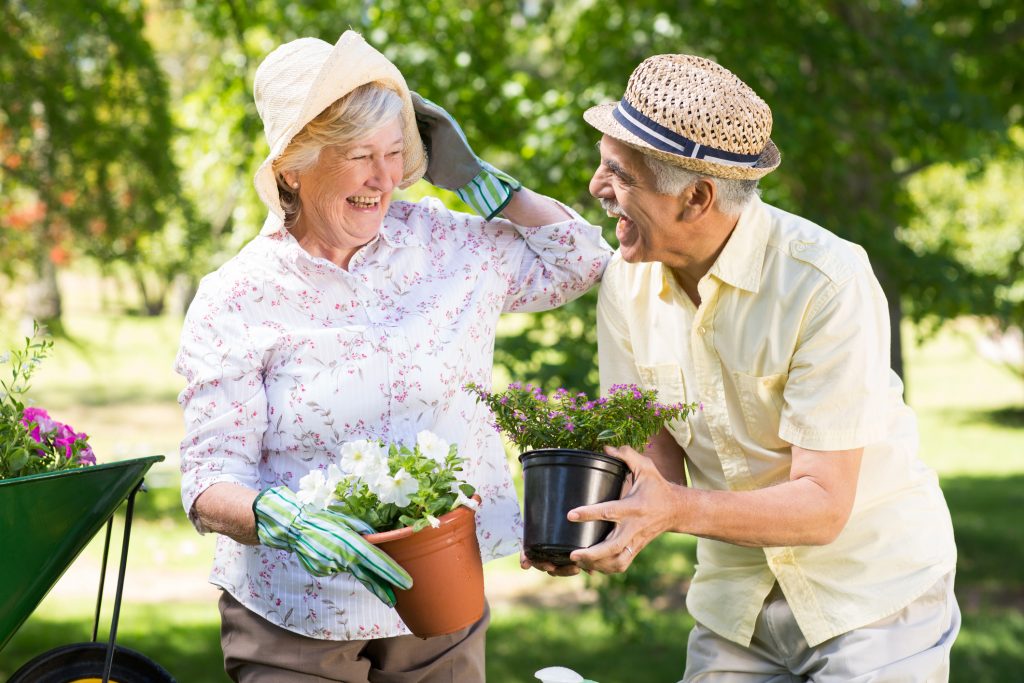Many would agree that prescriptions become the bane of our lives as we enter our twilight years. There is one type of prescription, however, that’s far less common and definitely more welcome: the ‘green prescription’. In a medical and scientific acknowledgment of the power of nature, more and more patients are being directed to spend a given amount of time outdoors, immersed in all things green and not made by us.
The medical world is, of course, late to the party. We’ve all experienced the mood-boosting benefits of gardening or simply walking through the local park. This inherent pull towards nature has been coined biophilia, and our long, dark months trapped indoors due to COVID has only made it more acute.
Now that we’re freer and able to indulge our more natural instincts, it’s worth reminding ourselves how good gardening can be for us.
Sunshine
So much of modern life occurs inside. Whenever we do venture outdoors, it’s usually because we’re trying to get to another indoor location – work, the supermarket, the cinema, shops. The fleeting moments we spend under the sun aren’t enough, and our bodies (and minds) suffer because of it.
One of the best things about gardening is that you have to get outside to do it. Sunlight on our skin helps make one of our most vital nutrients: vitamin D. It’s involved in hundreds of bodily functions, such as strengthening your bones and your immune system – important at any stage of life but particularly as we age. It can also help lower the risk of breast cancer, colorectal cancer, bladder cancer, prostate cancer… suffice to say, sunlight is good for us.
Of course, it can also be damaging in excess amounts. As we age, our skin can become thinner and more vulnerable to UV light, so it’s important we stay mindful of this. We don’t need to spend long in the sun to get the benefits, and we should always wear protection (clothing, sunscreen) whenever the UV index is above 3. Mornings and afternoons are the best times to be pottering in the garden.
Exercise
Gardening is a physical activity. No matter what you do in the garden – digging holes, pruning, strolling – it all involves moving your body. It’s an enjoyable form of exercise which promotes mobility and flexibility, dusts off those old motor skills and can even boost your endurance and maintain strength.
It doesn’t have to be strenuous either. We’re not talking about grabbing a shovel and digging into some heavy clay. Gardens inspire us to move, to investigate. A gentle stroll among the raised veggie beds and courtyards at BASScare’s Faversham House is enough to promote circulation and hone the parts of our brain responsible for balance. Of course, if you want to pick up a shovel, we won’t stop you…
Tranquility
Being in nature is soothing. In 2011, a study was published that involved people with depression participating in gardening activities for 12 weeks. Researchers then measured certain markers of mental health, including symptoms of depression, and found them all to be improved significantly. These improvements lasted months beyond the gardening, as well.
Other studies have demonstrated that gardening can be wonderfully recuperative, helping us to heal after traumatic events. One study suggested it was even more effective than other calming activities such as reading. Not that we’d ever discourage anyone from picking up a book. Life is about variety, after all.
The Faversham Gardens
At BASScare, we’ve long been aware of the benefits of green spaces. This knowledge played a significant part in the refurbishment of Faversham House, which is surrounded by secure, charming courtyards, a water feature and veggie beds. Our residents are encouraged to stroll through the dappled light and use our outdoor spaces as a source of rejuvenation and renewal.


No Comments
Feel free to comment. We wanna hear you thoughts, your feedback or your opinion.